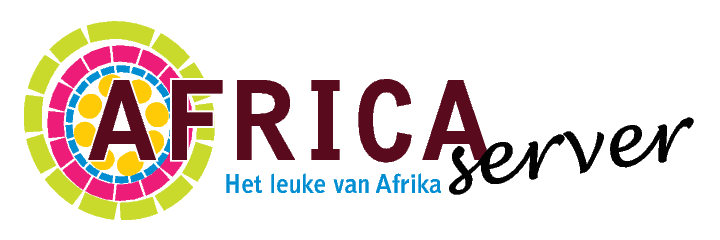Agenda 20 - 26 Juni 2021
Dinsdag 22 Juni
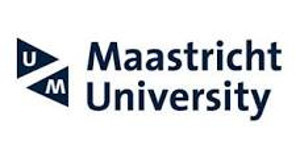
Online Promotie dhr. Hilaire Zon - "Decentralization of health resources to local governments in Burkino Faso"
Dinsdag 22 Juni 2021 13:00
Promotores: prof.dr. W.J.M. Groot, prof.dr. M. Pavlova. Fac. Health, Medicine and Life Sciences; Bestuursgebouw, Minderbroedersberg 4-6, Maastricht
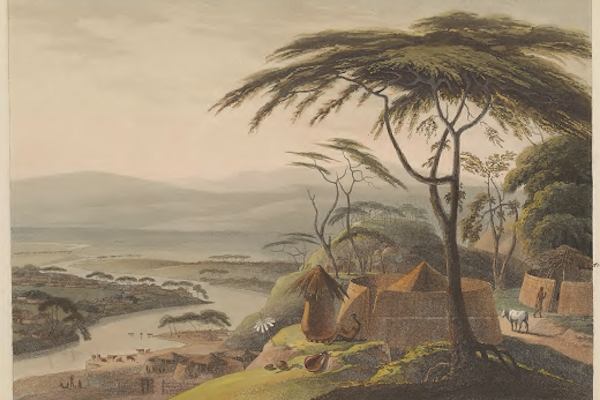
ASCL Seminar: The kingdom of the Barolong, kgosi Tau, and smallpox in 18th-century Southern Africa
Dinsdag 22 Juni 2021 15:30 - 17:00
This will be a physical event with a maximum capacity of 30 attendees. More information about livestreaming will follow soon. From at least the beginning of the 18th century and until at least the 1770s, the morafe or kingdom of the Barolong played a central role in the history of the Southern African interior. Then it collapsed during an epidemic, fragmenting in a number of groups competing for resources and primacy, which were progressively marginal on the expanding colonial frontier. A hundred years later, as colonialism engulfed the Diamond Fields and the surrounding lands, only the vague but recurring idea of the old ‘Land of Tau’ was left. The paper is an introduction to the history of the Barolong in the 18th century, sketching the eventful rule of kgosi Tau, the internal crisis, and the memory, remains, and remnants of the Barolong in the early 19th century. The work moves from the most recent archaeological research and from the redefinition of ‘traditional’ sources as writings of history in their own right, and proposes an analysis of long distance trade, urbanism, and smallpox epidemics in the Southern African interior.
Speaker: Dr Ettore Morelli. Registration: Click here to register for this event
Donderdag 24 Juni

Promotie mw. Njagi Purity Muthoni - "Financial risk, vulnerability and equity of access to healthcare services in Kenya"
Donderdag 24 Juni 2021 09:30
Promotor: prof.dr. W.J.M. Groot. Co-promotor: dr. J. Arsenijevic. Dit proefschrift is gebaseerd op de wereldwijde oproep om universele dekking van de gezondheidszorg (UHC) te bereiken. Het beantwoordt aan de bezorgdheid over de beste manier om gelijke toegang tot gezondheidsdiensten te verzekeren en tegelijk de meest kwetsbaren voldoende bescherming te bieden tegen de financiële kosten van een slechte gezondheid. Het richt zich op de gevolgen van het gebrek aan financiële risicobescherming voor personen die gebruik maken van gezondheidsdiensten en personen die afzien van gezondheidsdiensten als gevolg van financiële belemmeringen. Het begint met een overzicht van wat er bekend is over de omvang van de financiële risicokloven en de oorzaken van catastrofale gezondheidsuitgaven in de landen van Afrika ten zuiden van de Sahara (SSA). Met Kenia als casestudy wordt de kennis en het bewijsmateriaal over gelijke toegang aangevuld door de sociaaleconomische ongelijkheden op het gebied van financiële risicobescherming en de factoren die deze ongelijkheden in stand houden te onderzoeken. Daarnaast worden de kostengerelateerde barrières voor toegang tot gezondheidszorgdiensten en het effect van schokken op het vermogen van huishoudens om te investeren in gezondheidszorg onderzocht.

PhD: The right of victims of international crimes to reparations in the aftermath of the 1994 genocide against the Tutsi in Rwanda
Donderdag 24 Juni 2021 11:00
PhD ceremony: Mr Y. (Yves) Sezirahiga. Supervisors: prof. dr. C.I. (Caroline) Fournet, prof. dr. A.L. (Alette) Smeulers. The purpose of this thesis is to analyse how the government of Rwanda has addressed the harm caused to the victims of the genocide against the Tutsi in 1994 in Rwanda. It seeks to answer the research question: ‘to what extent has the right to reparations of the victims of the 1994 Rwandan genocide against the Tutsi been materialised?’ In answering this question, this research offers a comprehensive analysis of various Rwandan legal and non-legal responses to the harm suffered by the victims of the genocide against the Tutsi and examines them in the light of international standards on victims’ reparations. The TARR Model provided an important analytical framework, whereas the UN Basic Principles and Guidelines on the Right to a Remedy and Reparation constituted a significant yardstick for this research. While acknowledging the unprecedented right of the victims of the most serious international crimes to reparations, this research also exposes the practical challenges and shortcomings faced by the application of the internationalised human rights standards of victims’ right to reparations in cases of mass violations of human rights. Yet, it also recognizes that the measures put in place by the government of Rwanda to address the consequences of the genocide against the Tutsi do fit within the scope of the measures of restitution, rehabilitation and satisfaction, as provided in international law, and emphasizes their adaptation to local realities and experiences.
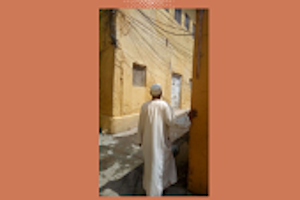
Workshop: Travelling Islam - the circulation of ideas in Africa
Van Donderdag 24 Juni 2021 - 15:30
t/m Vrijdag 25 Juni 2021 - 19:00
On 24 and 25 June 2021, the African Studies Centre Leiden, in coorperation with the Leiden University Centre for the Study of Islam in Society (LUCIS) and Centre for Arts in Society (LUCAS) organises the workshop 'Travelling Islam - the circulation of ideas in Africa'. This programme starts from the idea that cultural discourse is one of the main engines of intellectual history and the history of ideas. By following examples of Muslim discourse that have travelled across Islamic Africa, in different languages, scripts, and registers of expression, through different social environments and periods, we can deepen our understanding of the shaping of Islam in and through various African milieus. Bringing together perspectives of literature studies, history, and anthropology, this workshop aims to study circulating Islamic texts and discourses, not as monolithic and fixed archives but rather within a framework of ongoing translocal negotiation, and hence, creation, circulation, transformation, and re-appropriation. The workshop exists of four panels (panel I on Traveling Mystical Poetry, panel II on Stories of Connectiveness, panel III on Travelling Genres and Discourses, and panel IV on the Circulation of Texts), as well as round table sessions and a keynote speech by Prof. Fallou Ngom (Boston University) on 'The Significance of Ajami Sources in the Study of Muslim Africa', which is scheduled for 24 June and open to the public.

The Kleptocracy Project | ZAM & Pakhuis de Zwijger Livecast
Donderdag 24 Juni 2021 20:30
How African oligarchs sell out their countries. How international aid helps them. How activists try to stop them. ZAM & Pakhuis de Zwijger Livecast. Livecast. Free admission.
In many African countries, investigative journalism is on the rise. A new generation of change-makers uncover scandal after scandal, energising African protest movements fighting for social justice and good governance. The Kleptocracy Project, a long term collaboration between a network of journalists from countries all over Africa and ZAM, unearths the corrupt practices of crooked autocrats and their handlers. More importantly, it maps the contours of a kleptocratic system. How do billions for health, education, and safety ‘disappear’ and fill the pockets of a powerful few? How do international companies, PR gurus and foreign aid play into the hands of the stealing elites? How to tackle systemic dysfunction, aka the plunder machine, and the resulting lack of service delivery? How to turn misguided aid delivered to kleptocrats into real solidarity with those who fight for change? Join and listen to experts, journalists, activists and policymakers in a 75-minute programme that tackles these urgent questions. The event is organised by ZAM in collaboration with Pakhuis de Zwijger and hosted by documentary maker, presenter, and founder of Strawberry Earth, Ikenna Azuike
Vrijdag 25 Juni
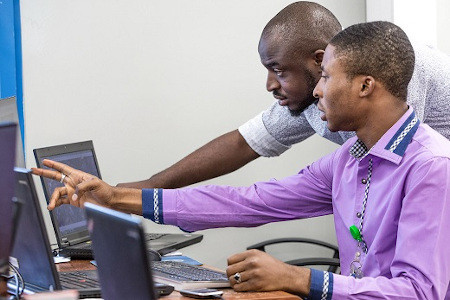
CRG Seminar: The promise and pitfalls of mHealth in Africa
Vrijdag 25 Juni 2021 09:30 - 12:00
This event will take place online. Registrees will receive a link one day before the start of the event. Over the past year, researchers in the Collaborative Research Group 'Pioneering Futures of Health and Well-Being' conducted multiple explorative studies on perceptions of and experiences with mHealth and Schistomosiasis in Africa. Focusing on case studies in Chad, using qualitative and quantitative research approaches, studies were conducted with patients and communities where mHealth interventions are being implemented, with doctors involved in these interventions, as well as with Europe-based international organisations initiating and supporting mHealth projects. In this seminar, the CRG members present emerging findings from these studies to gain deeper understanding of the promise and pitfalls of mHealth in Africa. Due to the mobile phone penetration, hopes have been placed in mHealth to increase access to healthcare. In addition, the aim of the seminar to explore how our preliminary insights help identify critical issues and gaps that need to be taken up in future research and practice.Click here to register for this event.
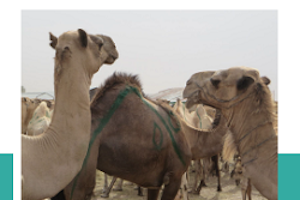
Somali Day. Culture and politics through the lens of Somali literature and orature
Vrijdag 25 Juni 2021 09:30 - 12:00
This event will take place online. Registrees will receive a link a few days before the start of the event. On 1 July 1960 Somalia became an independent state. In the framework of 'Africa 2020', the ASCL, its Library and LeidenASA will pay attention to this complex region of the Horn of Africa, praised for its (oral) literature, marked by its civil war and voiced by its diaspora. During the 'Somali Day' on 29 June, the country will be addressed from a historical-cultural perspective by reconsidering Somali culture and governance through the lens of its literature and diaspora.
The organisers take and support the view on literature considered as “the best way to transform consciousness, the way through which you can get access into others people lives” (Ahmed Jimale Ahmed in an interview by Sampsonia Way, April 18, 2018). This insight is just one among a handful raised by plenty of other scholars, thinkers and writers who have made Somali poetry, fiction and history resonate in wider circles (to name but a few, Nuruddin Farah, Ioan Lewis, Bogumil Andrzejewski, Martin Orwin, Fiona Moolla). Their views allow us to interpret Somalia from the inside and outside, within the frame of the themes, Click here to register for this event.

Workshop: Travelling Islam - the circulation of ideas in Africa
Van Donderdag 24 Juni 2021 - 15:30
t/m Vrijdag 25 Juni 2021 - 19:00
On 24 and 25 June 2021, the African Studies Centre Leiden, in coorperation with the Leiden University Centre for the Study of Islam in Society (LUCIS) and Centre for Arts in Society (LUCAS) organises the workshop 'Travelling Islam - the circulation of ideas in Africa'. This programme starts from the idea that cultural discourse is one of the main engines of intellectual history and the history of ideas. By following examples of Muslim discourse that have travelled across Islamic Africa, in different languages, scripts, and registers of expression, through different social environments and periods, we can deepen our understanding of the shaping of Islam in and through various African milieus. Bringing together perspectives of literature studies, history, and anthropology, this workshop aims to study circulating Islamic texts and discourses, not as monolithic and fixed archives but rather within a framework of ongoing translocal negotiation, and hence, creation, circulation, transformation, and re-appropriation. The workshop exists of four panels (panel I on Traveling Mystical Poetry, panel II on Stories of Connectiveness, panel III on Travelling Genres and Discourses, and panel IV on the Circulation of Texts), as well as round table sessions and a keynote speech by Prof. Fallou Ngom (Boston University) on 'The Significance of Ajami Sources in the Study of Muslim Africa', which is scheduled for 24 June and open to the public.
